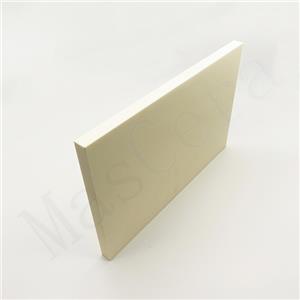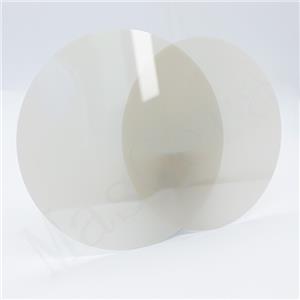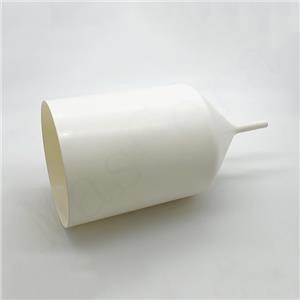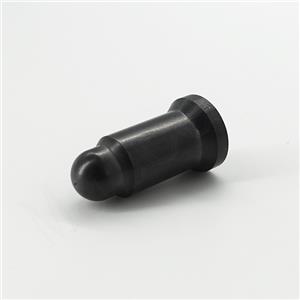What is the main use of Aluminum Nitride Ceramics?
Aluminum Nitride Ceramics (AlN ceramics) are a class of high-performance materials widely recognized for their high thermal conductivity, outstanding electrical insulation, and mechanical strength. As industries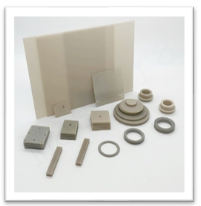 continue to demand smaller, faster, and more efficient systems, these advanced ceramics have become essential in next-generation technologies. From semiconductors to aerospace, Aluminum Nitride Ceramics are enabling breakthroughs in environments where both heat dissipation and electrical isolation are critical.
continue to demand smaller, faster, and more efficient systems, these advanced ceramics have become essential in next-generation technologies. From semiconductors to aerospace, Aluminum Nitride Ceramics are enabling breakthroughs in environments where both heat dissipation and electrical isolation are critical.
Why Choose Aluminum Nitride Ceramics?
1. High Thermal Conductivity
One of the defining features of Aluminum Nitride Ceramics is their high thermal conductivity. With values typically reaching ≥170 W/(m·K), AlN performs close to metallic aluminum (approx. 205 W/(m·K)), and significantly outperforms traditional ceramics like alumina, which offers only 18–32 W/(m·K). This exceptional thermal performance allows AlN to efficiently transfer heat away from critical electronic components, maintaining system stability and extending service life.
2. Excellent Electrical Insulation
Despite their metallic-like thermal performance, Aluminum Nitride Ceramics maintain superior electrical insulation. Their volume resistivity can reach up to 10^14 Ω·cm, and they demonstrate extremely low dielectric loss at high frequencies—typically below 0.001 at 1 MHz. Furthermore, AlN has a dielectric breakdown strength of 17 kV/mm, making it an ideal material for high-voltage and high-frequency applications where electrical isolation is vital.
3. Thermal Expansion Compatibility
AlN's coefficient of thermal expansion (CTE) is 4.7×10⁻⁶/°C, closely matching the CTEs of semiconductors like silicon (2.5×10⁻⁶/°C) and gallium arsenide (5.7×10⁻⁶/°C). This compatibility minimizes thermal stress, which reduces the risk of delamination or micro-cracking during thermal cycling.
4. Resistance to Harsh Environments
Aluminum Nitride Ceramics are chemically stable and resistant to corrosion from molten metals, acids, alkalis, and plasma. They can maintain structural integrity at temperatures up to 1800°C, making them suitable for use in high-temperature and corrosive industrial settings.
Key Applications of Aluminum Nitride Ceramics
1. Semiconductor & Microelectronics
In the semiconductor industry, Aluminum Nitride Ceramics are indispensable due to their high thermal conductivity and electrical insulation. Common applications include:
Electrostatic Chucks (ESCs): Secure silicon wafers during lithography and etching; AlN ensures rapid and uniform heat dissipation.
Heater Plates & CVD Substrates: Maintain thermal stability in chemical vapor deposition chambers.
Plasma-resistant Parts: AlN’s corrosion resistance enhances equipment life in aggressive plasma environments.
2. High-Power Electronic Devices
As power density increases in electronic devices, managing heat becomes more challenging. AlN’s combination of high thermal conductivity and electrical insulation makes it the ideal substrate for:
IGBT Modules: AlN substrates support reliable operation of insulated gate bipolar transistors in EVs and renewable energy systems.
RF/Microwave Circuits: Low dielectric constant and minimal signal loss are critical for high-frequency signal transmission.
Heat Sinks: AlN-based heat sinks are up to 40% lighter than metal equivalents with similar or better thermal performance.
AlN's CTE closely matches gallium nitride (GaN), making it a preferred material for:
High-Power LED Modules: Improve thermal performance and extend product lifespan.
Laser Diode Mounts: Maintain thermal stability for consistent wavelength output.
UV LED Packaging: Superior to alumina in withstanding UV degradation.
4. Aerospace & Defense
Aluminum Nitride Ceramics also find use in demanding aerospace environments:
Radar Cooling Units: Maintain safe operating temperatures for high-frequency radar transmitters.
Jet Engine Components: Withstand extreme temperatures while insulating sensors from combustion zones.
Missile Electronics Housings: Offer durable, lightweight protection for sensitive avionics under rapid thermal fluctuations.
Comparison with Other Ceramics
Property | Aluminum Nitride (ALN) | Alumina (Al₂O₃) | Silicon Nitride (Si₃N₄) |
| Thermal Conductivity (W/m·K) | ≥170 | 18–32 | 15–20 |
Flexural Strength (MPa) | 365–420 | 300–390 | >720 |
Dielectric Constant (@1 MHz) | 9 | 9 | 8.2 |
| Electrical Insulation | Excellent | Excellent | Moderate |
| High Thermal Conductivity | Outstanding | Poor | Moderate |
| Recommended Applications | High-frequency, high-power electronics | General insulation | Mechanical wear parts |
Compared to alumina or silicon nitride, Aluminum Nitride Ceramics offer the best balance between high thermal conductivity and electrical insulation, making them highly versatile across various high-tech industries.
Future Trends and Market Outlook
With the rise of 5G infrastructure, electric vehicles, and power-intensive computing systems, the global demand for Aluminum Nitride Ceramics is projected to grow significantly. Their ability to provide both high thermal conductivity and electrical insulation addresses the dual challenges of thermal and electrical management in compact, high-performance systems.
Advancements in sintering and powder processing technologies are also making it possible to produce AlN parts with even higher purity and precision. These developments open new opportunities in quantum computing, medical devices, and other frontier applications.
Aluminum Nitride Ceramics have emerged as one of the most important materials in modern technology. By offering an unparalleled combination of high thermal conductivity, superior electrical insulation, and robust mechanical performance, they solve critical engineering challenges across electronics, aerospace, and beyond. As industries continue to push for higher efficiency and miniaturization, the role of AlN ceramics will only grow more significant.

